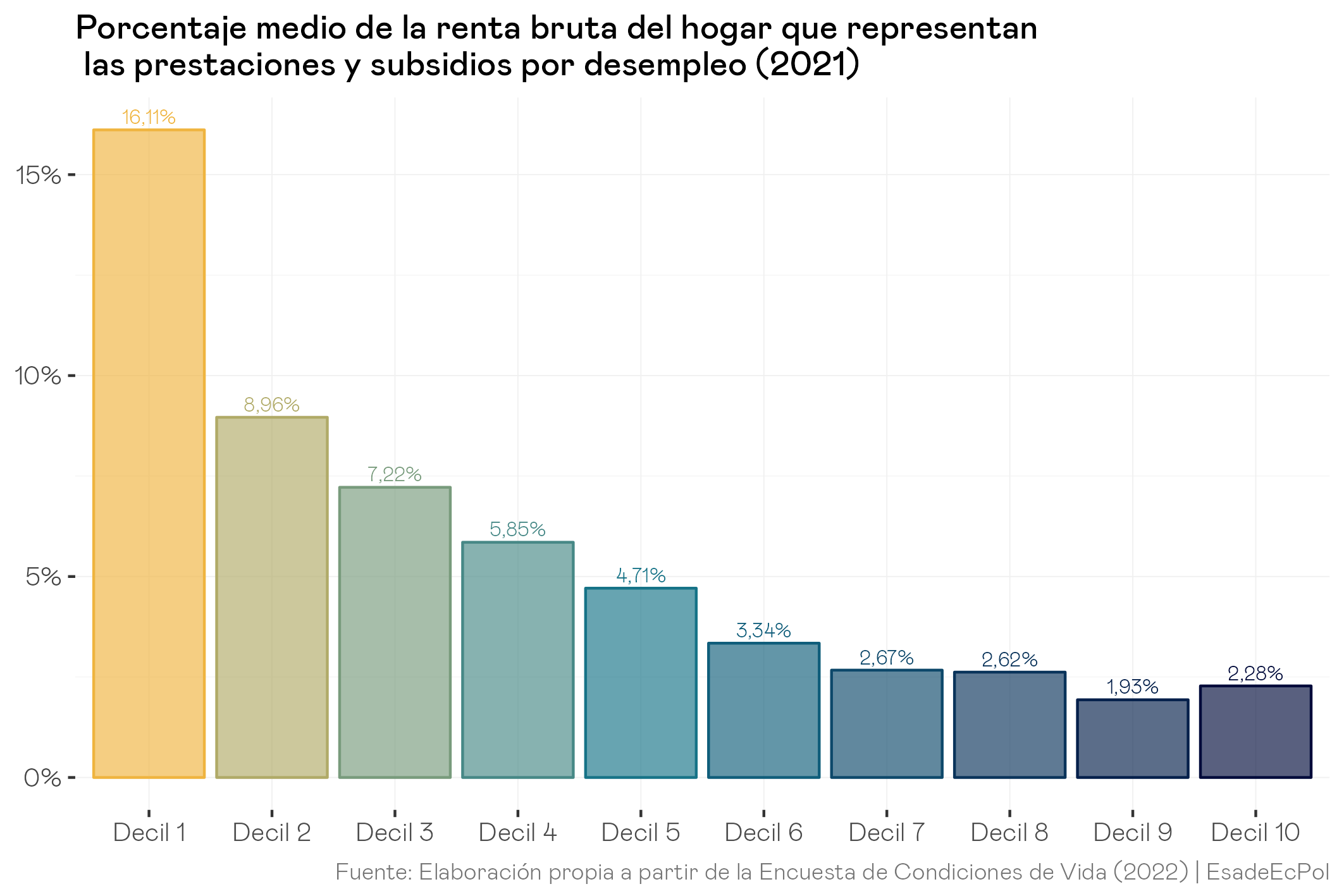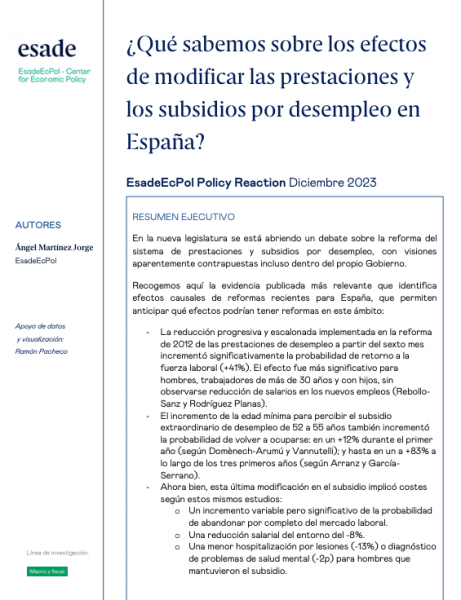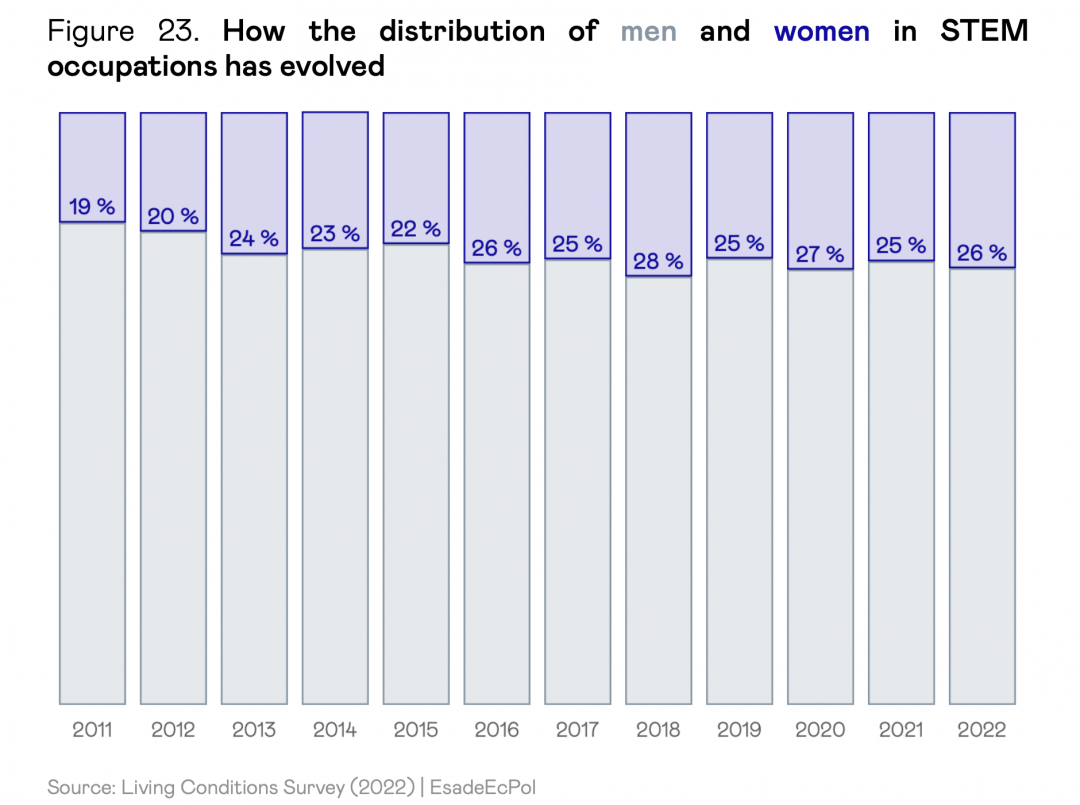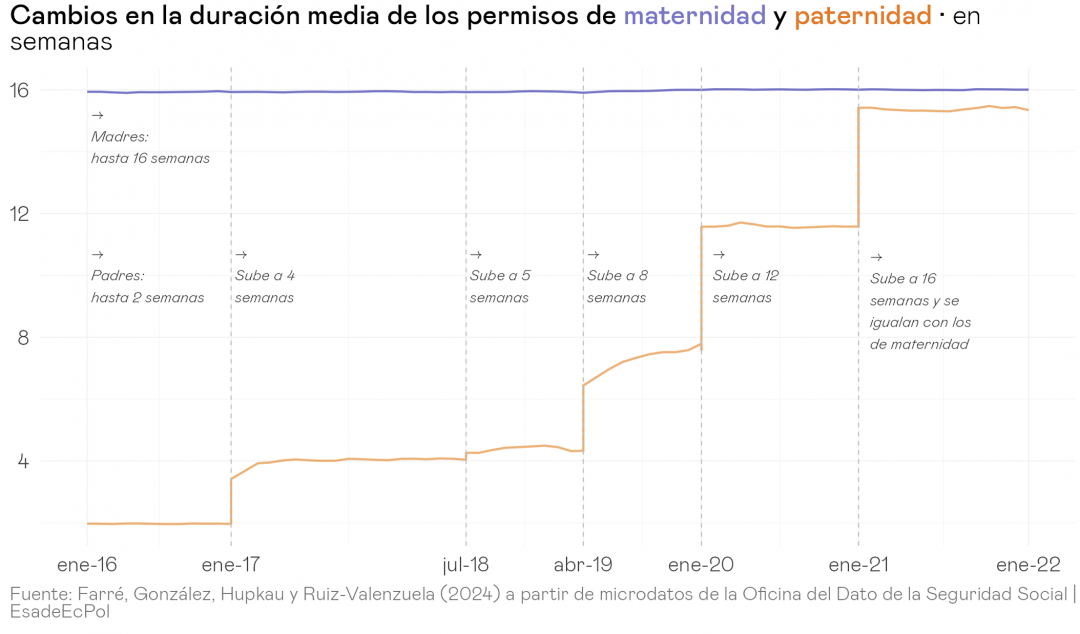
What do we know about the effects of modifying unemployment benefits and subsidies in Spain?
Ángel Martínez
5 Dec, 2023
The new legislature is opening a debate on the reform of the unemployment benefits and subsidies system, with apparently opposing views even within the government itself.
Gathering in this brief the most relevant published evidence that identifies causal effects of recent reforms for Spain, allows to anticipate what effects reforms in this area might have:
- The progressive and staggered reduction implemented in the 2012 reform of unemployment benefits as of the sixth month significantly increased the probability of returning to the labor force (+41%). The effect was more significant for men, workers over 30 years old and with children, with no reduction in wages observed in new jobs (Rebollo-Sanz y Rodríguez Planas).
- The increase in the minimum age for receiving the special unemployment benefit from 52 to 55 also increased the probability of returning to employment: by +12% during the first year (Domènech-Arumú y Vannutelli); and by up to +83% over the first three years (according to Arranz y García-Serrano).
- However, this last modification in the subsidy implied costs according to these same studies:
- A variable but significant increase in the probability of dropping out of the labor market altogether.
- A reduction in wages of around -8%.
- A reduction in hospitalization for injuries (-13%) or diagnosis of mental of mental health problems (-2pp) for men who maintained the subsidy.
A reasonable concern in this debate would be that reducing benefits could be a regressive policy, something that emerges from observing that, according to data from the Living Conditions Survey (Encuesta de Condiciones de Vida), subsidies and benefits account for a notably larger volume of the income of the poorest households. However, the eventual effects on employment generation could offset any regressivity at the outset.
This would be especially true if the change were complemented by a more ambitious and in depth reform than the recent ones on active employment policies, including but not limited to training services. While waiting to measure and evaluate the effects of the recently approved Employment Law (Ley de Empleo), Spain has a very wide margin for improvement in boosting comprehensive, personalized support actions, focused on guidance and better matching between labor supply and demand to break cycles of long-term unemployment and “low skills traps” that differentially affect precisely those labor profiles that are most vulnerable.




